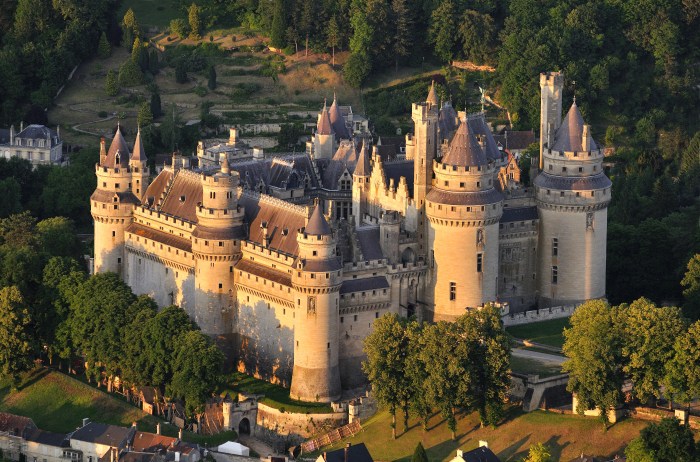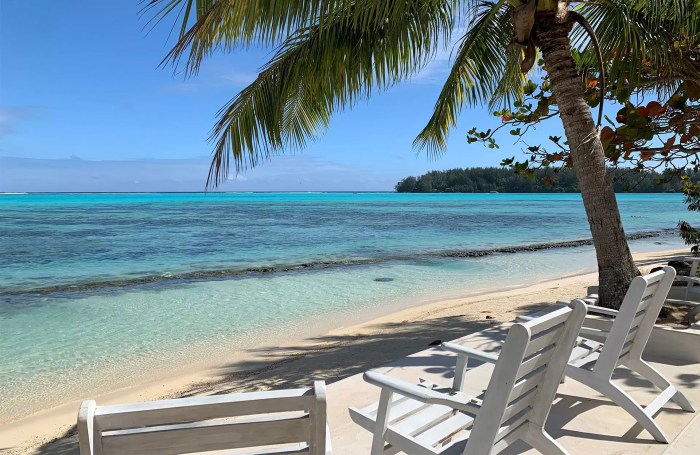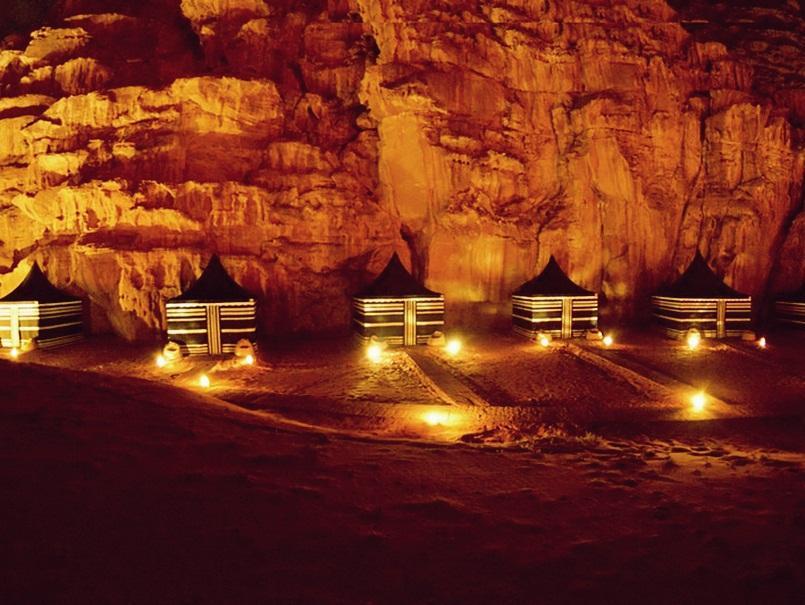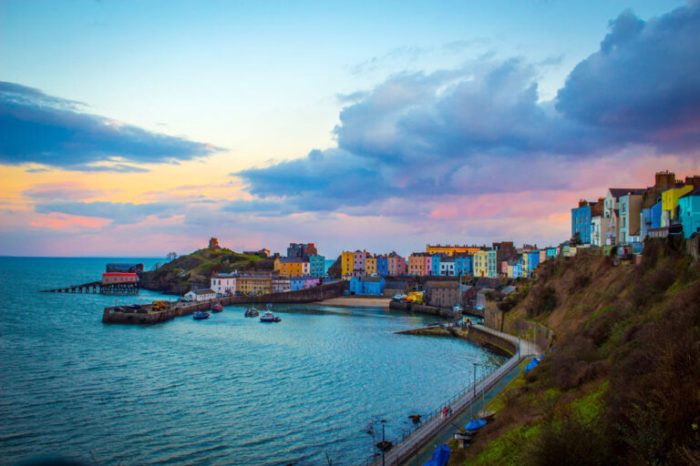Embark on an extraordinary journey through time as we delve into the captivating world of Chateau B&B France. These magnificent abodes, steeped in centuries of history and architectural grandeur, have been transformed into enchanting bed and breakfasts, offering a unique blend of luxury, authenticity, and personalized service.
Prepare to be captivated by the charm and elegance of these historical treasures as we explore their distinct ambiance, diverse experiences, and culinary delights.
From the rolling hills of Burgundy to the sun-drenched vineyards of Provence, chateau B&Bs are scattered throughout France’s most picturesque regions, each offering a glimpse into the country’s rich cultural heritage. Whether you seek a romantic getaway, a culinary adventure, or simply a chance to immerse yourself in the tranquility of the French countryside, a chateau B&B promises an unforgettable experience.
Chateau B&B in France: A Historical Overview
Chateaux, majestic castles steeped in history, have been an integral part of the French landscape for centuries. These architectural marvels emerged during the Middle Ages as fortified residences for the nobility and served as centers of power and influence. Over time, chateaux evolved into opulent palaces, showcasing the wealth and grandeur of the French monarchy.The
architectural styles of chateaux reflect the changing tastes and technologies of their eras. Romanesque chateaux, built between the 10th and 12th centuries, featured thick walls, small windows, and round towers. Gothic chateaux, constructed from the 12th to the 16th centuries, displayed pointed arches, ribbed vaults, and elaborate stained glass windows.
Renaissance chateaux, dating from the 16th and 17th centuries, incorporated classical elements such as symmetry, proportion, and ornamentation.In the 19th century, chateaux underwent a transformation as they were increasingly converted into bed and breakfasts. This trend allowed visitors to experience the grandeur of these historic structures while enjoying the comforts of modern hospitality.
Today, Chateau B&Bs offer a unique blend of history, charm, and luxury, providing guests with an unforgettable glimpse into the rich cultural heritage of France.
Evolution of Chateaux into Bed and Breakfasts
The conversion of chateaux into bed and breakfasts began in the mid-19th century, as wealthy families sought to supplement their incomes and preserve their ancestral homes. By offering rooms to paying guests, chateau owners could generate revenue while sharing the beauty and history of their properties with visitors.The
bed and breakfast model proved to be a successful one, as it allowed travelers to experience the grandeur of chateaux without the expense of staying in a traditional hotel. Chateau B&Bs also offered a more intimate and personalized experience, with hosts often providing insights into the history and architecture of their properties.Today,
Chateau B&Bs are a popular choice for travelers seeking a unique and memorable accommodation experience. These establishments offer a wide range of amenities, from elegant guest rooms and private bathrooms to gourmet breakfasts and guided tours. Many Chateau B&Bs also host special events, such as weddings, conferences, and cooking classes.
Exploring the Charm of Chateau B&Bs
Immerse yourself in the enchanting ambiance of chateau B&Bs, where history intertwines with modern-day luxury. These opulent residences exude an air of sophistication, with grand architecture, meticulously manicured gardens, and impeccable service that caters to your every whim.
Step inside and be greeted by elegant decor that whispers tales of a bygone era. High ceilings adorned with intricate chandeliers, plush velvet furnishings, and antique artwork create a sense of timeless grandeur. Each room is a sanctuary of comfort, with luxurious bedding, marble bathrooms, and breathtaking views of the surrounding countryside.
Personalized Service
At chateau B&Bs, personalized service is an art form. Attentive staff are dedicated to ensuring your stay is unforgettable. From arranging private tours and excursions to preparing gourmet meals tailored to your preferences, every detail is meticulously considered to create a truly bespoke experience.
“Our stay at the Chateau de la Bourdaisiere was like stepping back in time. The staff was incredibly accommodating, going above and beyond to make sure we had everything we needed.”- Sarah, a guest from the United States
Popular Chateau B&B Destinations in France
France is renowned for its stunning chateaus, many of which have been transformed into charming bed and breakfasts. These destinations offer a unique blend of history, luxury, and rural tranquility.
Among the most popular chateau B&B destinations in France are the Loire Valley, Burgundy, and Provence. Each region boasts its own distinct character, attractions, and chateau B&B offerings.
Loire Valley
- Characteristics:Known for its rolling hills, vineyards, and opulent chateaus built during the Renaissance era.
- Attractions:Includes the Chateau de Chambord, Chateau de Chenonceau, and the city of Tours.
- Chateau B&B Offerings:Offers a wide range of chateau B&Bs, from grand historic mansions to smaller, more intimate properties.
Burgundy
- Characteristics:Famous for its rolling vineyards, medieval towns, and Romanesque architecture.
- Attractions:Includes the city of Dijon, the Chateau de Beaune, and the Hospices de Beaune.
- Chateau B&B Offerings:Provides a variety of chateau B&Bs, often surrounded by vineyards and offering stunning views.
Provence
- Characteristics:Known for its lavender fields, olive groves, and picturesque villages.
- Attractions:Includes the city of Avignon, the Palais des Papes, and the lavender fields of Valensole.
- Chateau B&B Offerings:Offers charming chateau B&Bs nestled amidst the rolling countryside and lavender fields.
Experiences and Activities at Chateau B&Bs
Chateau B&Bs in France offer a wide range of experiences and activities that cater to diverse interests. Guests can immerse themselves in the local culture and history, indulge in culinary delights, or simply relax and rejuvenate amidst the serene surroundings.
These activities provide an opportunity to explore the unique character of each chateau and its surrounding region. Whether it’s a wine-tasting session in the chateau’s own vineyard, a cooking class led by a renowned chef, or a guided tour of the chateau’s opulent interiors, there’s something for everyone to enjoy.
Wine Tasting
Many chateau B&Bs in France are situated in renowned wine regions, offering guests the opportunity to experience the local viticulture firsthand. Wine tasting sessions are often led by knowledgeable sommeliers who guide guests through the nuances of different vintages and grape varieties.
Guests can learn about the history, production process, and tasting techniques of the wines, while savoring the flavors of the region.
Cooking Classes
For those who enjoy culinary adventures, cooking classes at chateau B&Bs provide an immersive experience in French cuisine. Led by experienced chefs, these classes cover a range of techniques and recipes, from classic dishes to modern interpretations. Guests can learn the secrets of preparing traditional French meals, using fresh, local ingredients and time-honored techniques.
Guided Tours
Guided tours of chateau B&Bs offer a glimpse into the rich history and architectural heritage of these grand estates. Knowledgeable guides lead guests through the chateau’s opulent interiors, showcasing its grand halls, intricate tapestries, and priceless works of art. Guests can learn about the families who once inhabited the chateau, the events that shaped its history, and the architectural styles that define its character.
Outdoor Excursions
For those seeking outdoor adventures, chateau B&Bs often offer a range of activities in their surrounding grounds and the nearby countryside. Guests can embark on nature walks through picturesque gardens, explore the surrounding vineyards or forests, or cycle along scenic trails.
Some chateau B&Bs also offer horse riding, fishing, or archery, providing opportunities to connect with nature and enjoy the tranquility of the French countryside.
Gastronomy at Chateau B&Bs
Chateau B&Bs offer a culinary experience that combines the charm of historic surroundings with the finest local cuisine. Using fresh, seasonal ingredients from the surrounding region, chefs at these establishments create dishes that reflect the rich culinary traditions of France.
Many chateau B&Bs feature elegant dining rooms with candlelit tables and attentive service. Guests can expect to indulge in multi-course tasting menus that showcase the region’s flavors and the chef’s creativity.
Signature Dishes
- Foie gras terrine: A classic French delicacy made from the liver of a duck or goose, served with toasted bread or fruit chutney.
- Escargots de Bourgogne: Snails cooked in a rich garlic and herb butter sauce, typically served with crusty bread for dipping.
- Coq au vin: A hearty stew made with chicken braised in red wine, mushrooms, and bacon.
- Crêpes Suzette: Thin pancakes topped with a sweet orange sauce and flamed with Grand Marnier liqueur.
Sustainability and Eco-Friendliness at Chateau B&Bs

Chateau B&Bs in France are increasingly embracing sustainability and eco-friendliness as part of their operations. They recognize the importance of preserving the environment and minimizing their impact on the surrounding natural beauty.
Chateau B&B France offers a unique and luxurious experience for travelers seeking an unforgettable getaway. For those seeking a more adventurous escape, the nearby Algarve region boasts a plethora of unusual activities. From exploring hidden coves by kayak to uncovering the secrets of the Ria Formosa Natural Park, the Algarve offers a myriad of off-the-beaten-path experiences.
Discover the unusual things to do in the Algarve and create memories that will last a lifetime. Upon returning to the serene ambiance of Chateau B&B France, guests can unwind amidst the tranquil gardens and savor the flavors of regional cuisine, completing their enchanting journey in the heart of France.
Many chateau B&Bs have implemented various initiatives to promote sustainability, including:
Renewable Energy Sources, Chateau b&b france
- Utilizing solar panels to generate electricity.
- Harnessing geothermal energy for heating and cooling.
- Installing wind turbines to generate renewable energy.
Waste Reduction
- Composting organic waste to create nutrient-rich soil.
- Reducing single-use plastics by using reusable water bottles, biodegradable straws, and compostable packaging.
- Implementing recycling programs for glass, paper, and metal.
Supporting Local Communities
- Sourcing produce and ingredients from local farmers and markets.
- Partnering with local artisans and businesses to offer guests authentic experiences.
- Participating in community clean-ups and environmental initiatives.
By embracing sustainability and eco-friendliness, chateau B&Bs in France are not only reducing their environmental footprint but also contributing to the preservation of the region’s natural and cultural heritage.
Planning a Trip to a Chateau B&B
Planning a trip to a chateau B&B in France can be an exciting experience. Here are some practical tips to help you choose the right location, book accommodations, and arrange transportation.
When choosing a location, consider your interests and the type of experience you are looking for. If you are interested in history, you may want to choose a chateau that has been restored to its original grandeur. If you are looking for a more relaxed experience, you may want to choose a chateau that is located in a rural area.
Once you have chosen a location, you can start booking your accommodations. There are a number of websites that allow you to book chateau B&Bs online. When booking your accommodations, be sure to read the reviews and compare prices.
Finally, you will need to arrange transportation to and from the chateau. If you are flying into France, you can rent a car or take a train to the nearest town. From there, you can take a taxi or bus to the chateau.
Sample Itinerary
Here is a sample itinerary for a weekend getaway at a chateau B&B in France:
- Day 1:Arrive at the chateau and check in. Take a tour of the chateau and grounds. Have dinner at the chateau restaurant.
- Day 2:Visit a nearby town or village. Go for a hike or bike ride in the surrounding countryside. Have dinner at a local restaurant.
- Day 3:Check out of the chateau and head home.
Chateau B&B Etiquette
Staying at a chateau B&B offers a unique and memorable experience, but it also comes with certain etiquette guidelines. Understanding and adhering to these guidelines ensures a respectful and enjoyable stay for both guests and hosts.
When it comes to dress code, chateau B&Bs typically have a relaxed atmosphere. However, it is generally considered appropriate to dress respectfully, especially during meals and social gatherings. Smart casual attire is usually sufficient, avoiding overly casual clothing like shorts or flip-flops.
Mealtimes
Mealtimes at chateau B&Bs are often a highlight of the stay. It is important to be punctual for meals and to inform the hosts in advance if you have any dietary restrictions or preferences. During meals, it is customary to engage in polite conversation and avoid using mobile phones or other electronic devices.
Respecting the Property
Chateau B&Bs are often historic properties, and it is important to treat them with respect. Avoid touching or moving furniture or artwork without permission. If you notice any issues or concerns with the property, it is best to inform the hosts promptly.
Anecdotes
Anecdote 1:
- A guest at a chateau B&B in Burgundy arrived in shorts and a T-shirt for dinner, causing discomfort among other guests.
Anecdote 2:
- A group of guests at a chateau B&B in the Loire Valley stayed up late and were noisy, disturbing the sleep of other guests.
Chateau B&Bs vs. Traditional Hotels: Chateau B&b France
Chateau B&Bs and traditional hotels offer distinct accommodation experiences with unique advantages and disadvantages.Chateau B&Bs, often housed in historic castles or manor houses, provide a sense of grandeur and immersion in history. They typically offer spacious rooms with antique furnishings, creating a charming and authentic atmosphere.
Guests can enjoy exclusive access to common areas such as lounges, libraries, and gardens, fostering a sense of community and relaxation. Additionally, chateau B&Bs often offer personalized services and bespoke experiences, such as guided tours, wine tastings, and cooking classes, enhancing the overall guest experience.Traditional
hotels, on the other hand, prioritize convenience and modern amenities. They offer a wide range of room types and facilities to cater to diverse traveler needs. Guests can expect comfortable accommodations with contemporary furnishings and access to amenities such as fitness centers, swimming pools, and business centers.
Traditional hotels often have a wider selection of dining options and room service, providing greater flexibility and convenience for guests.
Key Differences between Chateau B&Bs and Traditional Hotels
The following table Artikels the key differences between chateau B&Bs and traditional hotels:
| Feature | Chateau B&B | Traditional Hotel |
|---|---|---|
| Accommodation | Historic castle or manor house | Modern building with various room types |
| Atmosphere | Charming, historic, authentic | Convenient, modern, comfortable |
| Amenities | Limited, personalized services | Extensive, standard amenities |
| Dining | Intimate, locally sourced | Variety of options, room service |
| Price | Typically higher | Variable depending on hotel category |
Ending Remarks
As we bid farewell to the enchanting world of Chateau B&B France, we carry with us memories of grand architecture, warm hospitality, and the timeless allure of French history. These extraordinary bed and breakfasts have not only preserved the legacy of the past but have also created a new chapter in the story of French hospitality.
Whether you seek a luxurious retreat or an authentic cultural immersion, a chateau B&B offers a truly unique and unforgettable experience.
As you plan your journey to France, consider incorporating a stay at a chateau B&B into your itinerary. It will undoubtedly be a highlight of your travels, leaving you with a profound appreciation for the beauty, history, and charm of this remarkable country.
Quick FAQs
What is the history behind chateaux in France?
Chateaux in France have a rich history dating back to the Middle Ages, serving as fortified residences for noble families and wealthy landowners. Over the centuries, they evolved into symbols of power, prestige, and architectural ingenuity, showcasing various architectural styles and reflecting the cultural influences of different eras.
What makes chateau B&Bs unique?
Chateau B&Bs offer a unique blend of history, luxury, and personalized service. They combine the charm and grandeur of a historical chateau with the comfort and amenities of a modern bed and breakfast. Guests can expect elegant decor, spacious rooms, and attentive staff dedicated to making their stay memorable.
What are some popular chateau B&B destinations in France?
France is home to numerous charming chateau B&B destinations, each with its own distinct character. Some of the most popular regions include the Loire Valley, Burgundy, Provence, and the Dordogne Valley. Each region offers a unique blend of historical sites, picturesque landscapes, and renowned wineries.
What experiences can I expect at a chateau B&B?
Chateau B&Bs offer a wide range of experiences to enhance your stay. These may include wine tasting in the chateau’s own vineyards, cooking classes led by renowned chefs, guided tours of the chateau and its surroundings, and outdoor excursions such as hiking, biking, or horseback riding.
Are chateau B&Bs sustainable and eco-friendly?
Many chateau B&Bs are committed to sustainability and eco-friendliness. They implement various initiatives to reduce their environmental impact, such as using renewable energy sources, reducing waste, and supporting local communities. Some B&Bs also offer organic and locally sourced cuisine, further contributing to their sustainable practices.


